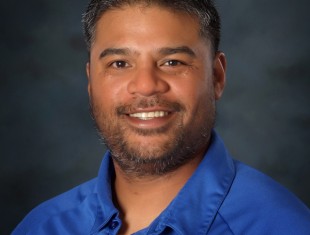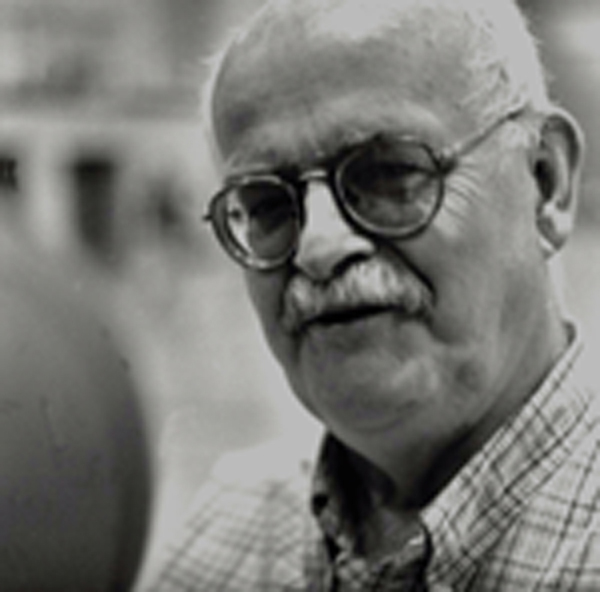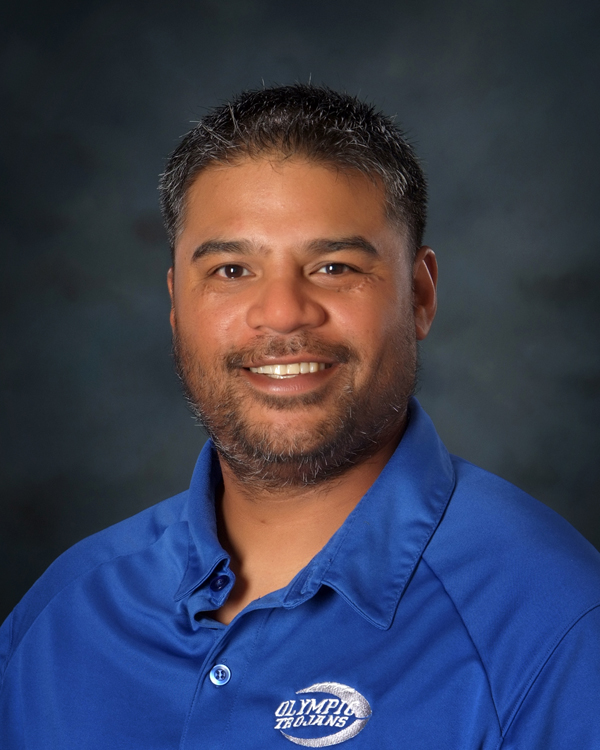TERRY MOSHER
SAL QUITEVIS
The magical run that the Olympic Trojans 2015 football had been on came crashing down last Saturday (Nov. 14) when the state 2A defending football champion Sedro Woolley team from Skagit County played the villain part in the rain at Silverdale Stadium.
The Cubs from Sedro Woolley pulled away in the second half to secure a spot in the state 2A quarterfinals by ending Olympic’s unbeaten season with a 34-14 win in an opening-round state game. It was a stunning loss for the Trojans who came into the game ranked as the No. 7 team in the state and sported a 10-0 record.
Olympic had allowed just 40 points in those 10 victorious games and just once allowed more than seven points in a game, and that just 14 to North Kitsap in a 17-14 win in its last regular-season contest that gave the Trojans the Olympic League 2A championship.
However, having spent time up north going to high school and to college at Western Washington in Bellingham I can attest that those teams up there in Whatcom County and Skagit County are traditionally extremely tough. You beat one of their teams in the post-season you should pat yourself on the back because it’s quite an accomplishment to do that.
The Trojans were limited a bit because of injuries to Geordyn Shinard and Keith Moore that kept the two talented players off the field in the second half (Shinard was the Olympic League MVP and Moore is being recruited by D-1 schools) and to Jayden Fernandez, who did not play because of injury.
But at this point in the season injuries happen in a sport as rugged as football and certainly third-year coach Sal Quitevis Jr. would never use those injuries as an excuse for losing. In fact, Quitevis applauded the Cubs for their performance.
We should, though, applaud Quitevis. He, with the help of a very capable staff, has gotten the Trojans into the playoffs each of his three years at the helm and that is no mean feat.
Quitevis became the interim coach when Brad Hamblet retired after the 2012 season (Hamblet was hired when Tim Allbee developed a serious illness) and led the Trojans to a district game and a 5-5 record. Then last year, after having the interim tab lifted, he coached the Trojans to the first round of the state playoffs and a 7-4 record.
So with this year’s 10-1 record, Quitevis has compiled a 22-10 record with three consecutive playoff appearances in three years. Not bad. Not bad at all.
Before he became the interim coach in 2013 I will shamefully admit I had not heard of Quitevis. So I called him the other day to find out a little about the guy who has put Olympic back on the high school football map, a place where they fell off since the days of Doug Smith, the school’s second coach who had some brilliant teams in the 1980s (three consecutive state playoffs, including the semifinals in 1983) before departing in 1986 for administrative duty in Nevada and then at Helix High School in San Diego.
What I find interesting is Quitevis was a sophomore in 1986 when the Trojans lost to Kelso in a state quarterfinal game. He didn’t get to play much, but he was all eyes and ears and was in the beginning stages of soaking up as much football knowledge as he could as a prelude to the days he coached pee wee football and then graduated to high school, first with Klahowya, and then back to Olympic where he was an assistant at first.
Quitevis wound up playing at Olympic with guys like Bob Garman, who starred at Washington State, and running backs Tina Togia and Dave Faagau, both of whom are among the short list of top rushers in West Sound history.
Bob Milligan was his coach for his last years at Olympic, where he ended up being a tough in-the-trenches kind of guy as offensive guard and outside linebacker.
“I got to play against some pretty big guys and that’s how I learned to battle in the trenches,” says Quitevis, who was outmanned talent wise but stood his ground to become a good player for the Trojans.
After graduating in 1989 from Olympic, Quitevis held several jobs, including in Seattle. He had his own carpet cleaning business for10 years and is now working maintenance at Santa Fe Ridge Apartments in Silverdale and has an arrangement that allows him to take time to coach football.
Quitevis had four children, the oldest is 21 and his two twins (boy and girl) are 17 and juniors at Olympic High School. The youngest is 10. One of the twins, Evan, played on the football team and was the Trojans’ punt and kick returner.
He started his coaching career with the North Perry Peewees, winning two county football championships there. When Evan got into junior high, Quitevis applied for a coaching opening at Klahowya and was assistant to Dan Ericson when the Eagles finally snapped the state’s longest football losing streak (24 games) with a victory over Chimacum on September 9, 2011. The Eagles would win three games that season.
After that season, a friend suggested he apply for a coaching job at Olympic. He talked to Allbee and was placed on the staff. Allbee then got sick and Hamblet took over. It was Hamblet who inspired Quitevis.
“”He told me that he thought I had a future in this sport,” says Quitevis.
So when Olympic could not find a coach after Hamblet stepped down, Quitevis was given the job on an interim basis until the school could find a permanent replacement.
Typically when a new coach is hired, he wants his own coaches and Quitevis was worried that would happen and he would be out of coaching. But as it turned out, the Trojans caught fire and made it to the district playoffs under Quitevis in 2013 and when a decision had to be made on a coach, Olympic athletic director Nate Andrews turned to the guy who already had the job – Quitevis – and gave him the job.
With the job now his, Quitevis showed Andrews he deserved it by leading the Trojans to the state tournament in 2014. They lost their state opener, 48-13, to Ellensburg.
“They made the final four,” says Quitevis of Ellensburg. “They were a good team. We had to play them there. It was about a four-hour trip and we get there and it’s 18 degrees and the grass field was frozen. It wasn’t the best conditions. I’m not making excuses, but it was a long trip and then we get there and it’s that cold. We were dealing with a tough situation. But those guys (Ellensburg) were good and they took it to us.”
Quitevis was learning, though. He figured out pretty quickly that it all comes down to having good fundamentals in the offensive and defensive lines. That’s where success really starts. And he had been there as a player so he had that knowledge stored in his head.
“When you have some athletic guys in the trenches, boy it just makes everything easier,” says Quitevis. “It makes it easier for the team and coaches and just for our scheme.
“If we are not the greatest blockers or tacklers out there, it will make it tough to win games. So we make sure everybody can block and tackle. If we do those things we can win games. That’s the best thing I bring to our team.”
Quitevis was a guard on the Olympic basketball team when he was in school until the 11th grade when everybody got bigger than he did. But he did learn from that experience what it took to lead and that if you develop the basic skills you can succeed.
He also learned along the way to surround himself with good people. He praises his defensive coordinator James Managuid and offensive line coach Kevin Edde as being big keys to the success the Trojans enjoyed.
“They made it easier for me,” says Quitevis, who was also aided by his brother Erwin Quitevis, the offensive coordinator.
Another factor in the team’s success was Quitevis’ emphasis on his players getting into the weight room at the school. His first year there usually was from five to seven players taking advantage of the weight room, his second year about 15 and this year there was normally 25-plus in the weight room.
There was also the off-season when Quitevis got his players to learn the plays so that before official practice starts in mid-August coaches don’t have to start from the beginning to be ready for the first game.
Bottom line to the success the Trojans enjoyed this season was the simple and basic approach Quitevis used in building the Olympic League champions. It was traits that he learned coaching at North Perry and being around his coaches, Doug Smith and Bob Milligan, and never strayed from them.
“I’m a bring-your-lunch-pail kind of guy, and that has been my life,” says Quitevis. “I didn’t go to college and I went from job to job. I’ve been a lunch pail guy that learned from my mistakes and knew that if you keep pushing good things will happen.
“Sometimes things don’t do your way. There will be adversity in your life. You can sit and whine about it or look in the mirror and do something about it.
“I tell my coaches to tell the kids about life. You grow up in life and build a team ‑ family and friends ‑ around you to help you get through the game of life. That’s nothing different then what we are doing here.
“You never want to burst anybody’s bubble. But you probably are not going to make it to the next level. Going from high school (football) to college (football), the odds are slim. But you can get a lot more out of the high school game and out of the educational part. You put in the effort in practice, good things can happen.
You might flunk (a test), but if you work hard and can prepare yourself you can overcome that.”
It doesn’t get easier for Quitevis. This year’s Olympic team was laden with seniors, some of who played for Quitevis in the pee wees. He may have to rebuild next fall, but if enough players buy into his lunch-pail approach and learn to overcome the mistakes that are sure to come, things almost certainly will get better.
If that happens, the Trojans may be back in the state playoffs again.



